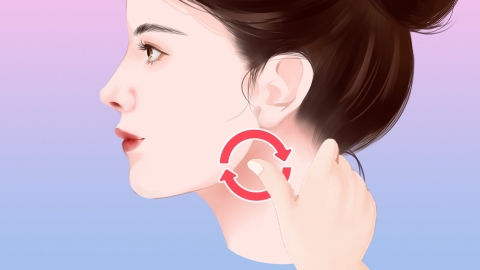How is hypothyroidism in women caused?
Hypothyroidism generally refers to underactive thyroid function. In most cases, hypothyroidism in women may be caused by autoimmune factors, abnormal iodine intake, thyroid surgery or radiation therapy, medication effects, pituitary diseases, and other reasons. If the above situations occur, prompt medical attention is recommended. Detailed analysis is as follows:
1. Autoimmune factors
Autoimmune thyroid disease is a common cause of hypothyroidism in women. The body produces autoantibodies against the thyroid gland, attacking thyroid tissue and causing destruction of thyroid follicles, resulting in reduced synthesis and secretion of thyroid hormones. Symptoms may include goiter, fatigue, and others.
2. Abnormal iodine intake
Iodine is a raw material for the synthesis of thyroid hormones. Long-term iodine deficiency leads to reduced thyroid hormone production, while excessive iodine intake may trigger or worsen autoimmune thyroid diseases, thereby causing hypothyroidism. Symptoms may include lethargy, dry skin, and others.

3. Thyroid surgery or radiation therapy
After partial or total thyroidectomy due to thyroid nodules, tumors, or other conditions, reduced thyroid tissue leads to insufficient hormone secretion. Radiation therapy to the neck area may also damage thyroid tissue, leading to impaired function. Symptoms may include cold intolerance, decreased appetite, and others.
4. Medication effects
Long-term use of certain medications may affect thyroid function. For example, antithyroid drugs such as methimazole tablets and propylthiouracil tablets, when used in excess, can inhibit thyroid hormone synthesis. Amiodarone tablets, which have a high iodine content, may also interfere with thyroid hormone metabolism, triggering hypothyroidism. Symptoms may include drowsiness, weight gain, and others.
5. Pituitary disease
Thyroid-stimulating hormone (TSH) secreted by the pituitary gland promotes thyroid hormone synthesis. If the pituitary gland is diseased and TSH secretion decreases, it can lead to hypothyroidism. Symptoms may include headaches, menstrual irregularities, and others.
In daily life, maintaining regular sleep patterns and avoiding excessive fatigue is recommended. Eating a balanced diet and adjusting iodine intake according to individual circumstances is advised. Maintaining a positive mindset and avoiding prolonged mental stress is also important. If symptoms such as significant fatigue, cold intolerance, or menstrual abnormalities appear, timely medical evaluation of thyroid function is recommended.




